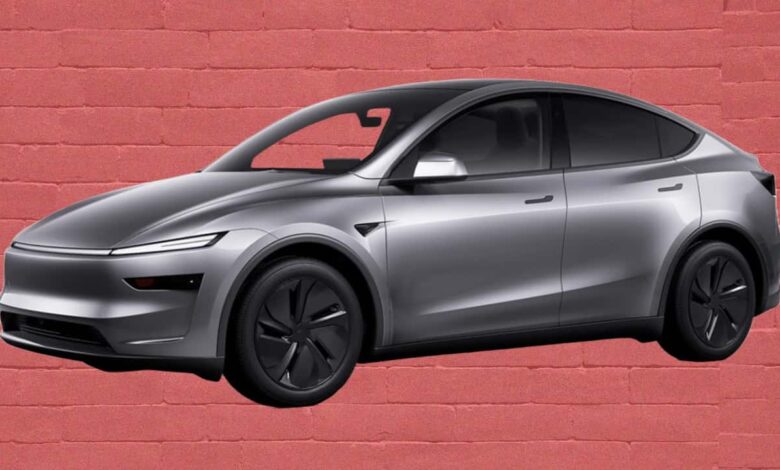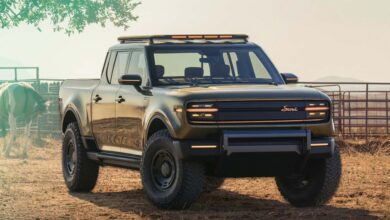Tesla’s Brand Reputation Gets More Bad News


- Across party lines, the brand perception and support for Tesla continues to slide, according to a new study.
- Despite Elon Musk’s far-right politics, Tesla hasn’t gained any sizable number of Republican fans.
- The study also indicates strong support for better transparency from Tesla regarding FSD safety data.
Tesla alienated its historically left-leaning liberal customer base when CEO Elon Musk got involved into far-right politics. A new study highlights that Musk’s now-dead friendship with President Trump and his coddling of the MAGA voter base may have spectacularly backfired: Tesla has not won over any sizable conservative customer base to make up for the liberal buyers it lost.
The company’s brand perception has now turned negative among Democrats, Republicans and Independents, according to the Electric Vehicle Intelligence Report. The study adds that both the CEO and his brand are undergoing declining perception across party lines with “no clear recovery in sight.” The report was first published by Semafor and has a sample size of 8,000 respondents in the U.S.
Tesla’s sales dropped for the second consecutive quarter, falling 13.4% in the April-June period as its global decline continues amid a pivot to AI and robotics.
Musk spent nearly $300 million in Trump’s reelection efforts last year. He then went on to briefly spearhead the government’s cost-cutting efforts, firing tens of thousands of American government workers and gutting long-standing agencies, which has already started having fatal consequences in some regions.
His involvement triggered nationwide “Tesla Takedown” protests. Many buyers even started trading in their Teslas. But Musk and Trump have been publicly sparring over the “Big Beautiful Bill” spending bill that balloons the country’s budget deficit, undermines Musk’s cost-cutting efforts under the Department of Government Efficiency (DOGE) and guts tax credits for EVs and other clean energy programs.
“A massive strategic error is being made right now to damage solar/battery that will leave America extremely vulnerable in the future,” Musk said on Sunday in a post on his social media platform X. “It gives handouts to industries of the past, while severely damaging industries of the future,” he said in another post.
But his advocacy for clean energy seems to have little effect on how consumers are perceiving Tesla after his stint at DOGE.
“Democrats are deeply negative toward the brand, independents are also negative, and Republican positivity toward Tesla has not increased meaningfully in a way that helps the brand,” the EVIR study concludes.
“The Trump-Musk feud has further undercut Republican positivity toward the brand, which is seeing its reputation crater to -10 positivity, a direct result of having no reliable partisan sources of brand support left after Musk’s political turn.”
When asked if Musk’s tenure at DOGE made them more or less likely to buy a Tesla, 33% of all respondents, including 54% Democrats and 30% independents, said they were less likely to buy the brand’s EVs. The majority of Republicans said their view of Musk had decreased (18%) or remained unchanged (37%).
About 18% of Republicans said their view of Tesla was favorable, 13% said it was unfavorable and 68% had no change in opinion.
The study also signals broad support among U.S. car buyers to hold Tesla more accountable for its Robotaxi, which it launched in Austin, Texas towards the end of June. Consumers also broadly support having more transparency from Tesla regarding the safety of the Full-Self Driving (FSD) software which underpins the Robotaxi as well as Tesla’s passenger vehicles.
Plus, Republicans and Democrats strongly support the use of radar and lidar in robotaxis and also support banning FSD until its proven safe.
Sixty two percent of all consumers, including 65% Democrats, 59% Independents and 61% Republicans said they supported FSD to use radar and lidar to improve safety. Tesla only uses cameras and AI to guide its Robotaxis autonomously, suggesting that’s a lower cost way to scale Robotaxis instead of using expensive hardware such as lidar. AI scientists have doubts regarding Tesla’s cameras-only approach.
The Robotaxi rollout went mostly smoothly, but not without some dangerous maneuvers that raised eye-brows industry-wide. Rivals such as Waymo are far ahead in their deployment and scale and do indeed use advanced sensors such as lidar.
The survey also asked respondents if they would allow their personal cars to be used as Robotaxis in the future when they weren’t using them. Musk has long said that Tesla owners will be able to earn money in the future by allowing their EVs to function as Robotaxis when they’re using them, in a sort of mix of Airbnb and Uber. Vast majority of respondents surveyed said they are not thrilled by that prospect.
Fifty five percent of consumers said they would never let their personal vehicles be used as robotaxis. About 27% said they were not “currently” considering such an outcome. Around 9% were not sure and another 9% said they would consider allowing their personal vehicles to function as robotaxis when they were not using them. Those numbers aren’t great for Tesla, either, as Musk has staked the future of the company on autonomy. If that doesn’t drive a massive spike in demand, Tesla may run out of good options.
Have a tip? Contact the author: suvrat.kothari@insideevs.com
Source link

